With Presidents’ Day around the corner, it’s a good opportunity to learn just which two Presidents (both with February birthdays) this holiday commemorates! February 12 marks the birthday of Abraham Lincoln — so have a listen (and learn) about Lincoln, starting with a Walking Classroom podcast (5-#54, Complete-#83) about our 16th President!
Lincoln’s Life
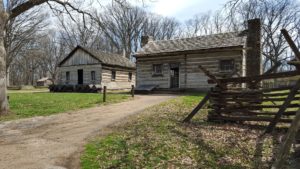 On February 12, 1809, Thomas and Nancy Hanks Lincoln welcomed a son to the world. Born in a little log cabin in rural Kentucky, the young Abraham Lincoln’s upbringing was a far cry from the lives of many other presidents.
On February 12, 1809, Thomas and Nancy Hanks Lincoln welcomed a son to the world. Born in a little log cabin in rural Kentucky, the young Abraham Lincoln’s upbringing was a far cry from the lives of many other presidents.
His early life was marked by hardship and hard work, but that never harmed Lincoln’s love of learning. Before he was 20, he lost his mother and sister. By 25, he could practice law.
In 1842, Lincoln married Mary Todd, daughter of a wealthy Kentucky lawyer and businessman. An affectionate husband and father to four sons, Lincoln was a model parent. Even though only one of his sons made it to adulthood, Lincoln ran a successful prairie law practice. Not to be discouraged, he also sat four terms in the Illinois House of Representatives. He even became the only U.S. President ever to hold a patent!
Political Career
In 1854, Congress passed the Kansas-Nebraska act. The Kansas-Nebraska act let territories adopt or forbid slavery by popular sovereignty. Before, states decided based on how far north they were. This posed a concern for many Northerners, who saw the act as a threat to the balance between free and slave states in Congress.
A staunch anti-slavery voice, Abraham Lincoln emerged as a popular Republican leader. Even though he never won a seat in the Illinois senate, the Republican party nominated Abraham Lincoln as their 1860 presidential candidate.
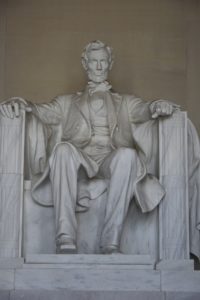 Lincoln won in a landslide! Many Southern states viewed his victory as a threat to their slave-owning way of life, and seceded from the Union, forming the Confederate States of America. The Civil War sparked not long after. During the war, Lincoln vowed to abolish slavery, and in 1863, Congress ratified the 13th Amendment, outlawing slavery. Tragically, Lincoln would be assassinated shortly after the war, while attending a play at Ford’s Theatre.
Lincoln won in a landslide! Many Southern states viewed his victory as a threat to their slave-owning way of life, and seceded from the Union, forming the Confederate States of America. The Civil War sparked not long after. During the war, Lincoln vowed to abolish slavery, and in 1863, Congress ratified the 13th Amendment, outlawing slavery. Tragically, Lincoln would be assassinated shortly after the war, while attending a play at Ford’s Theatre.
Add an Additional Podcast (or two!)
With such a lifelong love of learning, it’s no surprise teachers still teach Lincoln’s speeches and writings! You may want to add in some additional assistance from two other Walking Classroom podcasts:
- Gettysburg Address, Part I (5-#58, Complete-#87)
- Gettysburg Address, Part II (5-#59, Complete-#88)
Then, have students read and analyze the Gettysburg Address, focusing on its rhetorical devices!
If your students want to learn more about Lincoln, check out these other Walking Classroom podcasts!
- Emancipation Proclamation (5-#57, Complete-#86)
- Assassination of Abraham Lincoln (5-#60, Complete-#89)
Examine the Emancipation Proclamation and the Thirteenth Amendment themselves, then discuss their impact and importance in United States history.
Ford’s Theatre offers an array of lessons on Lincoln’s legacy and assassination, including a memoir reading and writing activity!
Supporting your Study
Love books? You’re in good company! Abraham Lincoln once said, “My best friend is a person who will give me a book I have not read.” Start your class off with a few books for kids about America’s 16th president!
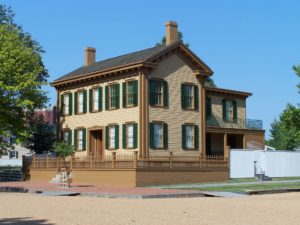 Look deeper into the life of Abraham Lincoln with a virtual tour of the Lincoln home through National Park Service. Or, investigate Lincoln’s other accomplishments by taking a look at a Smithsonian Magazine article on his patent for a flotation device!
Look deeper into the life of Abraham Lincoln with a virtual tour of the Lincoln home through National Park Service. Or, investigate Lincoln’s other accomplishments by taking a look at a Smithsonian Magazine article on his patent for a flotation device!
Few presidents since Washington can claim such an influence on our nation today. Encourage students to think of some examples of Lincoln’s lasting impact!


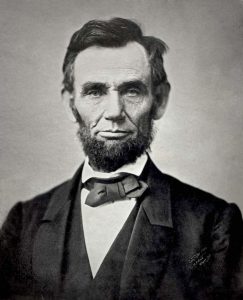
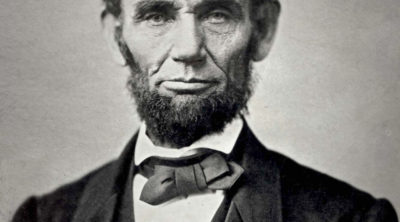

Leave a Reply